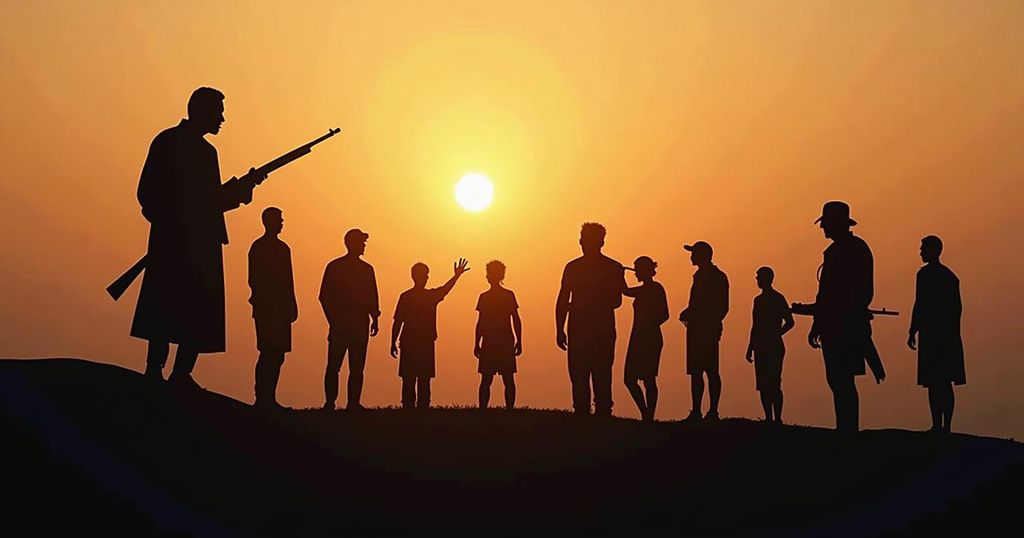Hassan Nasrallah, the leader of Hezbollah, was killed in an Israeli airstrike, a significant event likely to destabilize the group and the wider Middle East. His assassination comes amid rising tensions between Israel and Hezbollah, with potential implications for U.S. interests. Although Hezbollah retains military capabilities, Israel’s attack complicates diplomatic efforts for ceasefire, raising concerns about future escalations and the political vacuum in Lebanon.
On Friday, the iconic leader of Hezbollah, Hassan Nasrallah, was killed in an Israeli airstrike in Beirut. A figure who had garnered substantial popularity throughout the Arab world due to his charismatic speeches, Nasrallah was also deeply feared among his adversaries for his considerable political and military influence, not just in Lebanon, but across the region. His assassination is likely to cause significant upheaval within Hezbollah, an organization he transformed from covert militant factions over three decades into a dominant political force and one of the most powerful armed groups globally. The repercussions of his death may reverberate throughout the tumultuous Middle East and may also impact U.S. interests as the Biden Administration had recently deployed additional troops in response to rising tensions between Israel and Hezbollah. Israeli operations, which included bombings that resulted in civilian casualties and the deaths of other top Hezbollah officials, have been described by Firas Maksad, a senior fellow at the Middle East Institute, as a crossing into “all-out war,” aiming to deliver a fatal blow to Hezbollah. The organization is reportedly “reeling” following intensive Israeli military and intelligence strategies executed over recent weeks, effectively dismantling its leadership and operational capabilities through targeted strikes. This assault has included numerous air strikes on weapons depots and critical military infrastructure, and has caused considerable disruptions to communication systems for Hezbollah personnel. Hassan Nasrallah, who often emphasized the value of both faith and force, rose to prominence early in his life, representing Lebanon’s Shiite community from a young age. He had articulated a steadfast resolve against perceived external threats, particularly against Israel, stating, “The only way that we have is to take up arms and fight the occupation forces,” following the 1982 invasion of Lebanon by Israel. While Nasrallah’s death represents a major blow to Hezbollah, experts suggest that the movement retains its military capabilities, with several thousand trained fighters and a significant arsenal at its disposal, as stated in a CIA assessment indicating up to fifty thousand combatants with battlefield experience from the Syrian civil conflict. As such, Hezbollah may retaliate with increased hostilities against Israel with no regard for limitations or consequences. The timing of the attack is significant, as it occurred shortly after President Netanyahu criticized Hezbollah at the United Nations, labeling it a “quintessential terror organization” responsible for numerous assaults against civilians and calling for an end to their threats. Despite U.S. efforts to negotiate a ceasefire just days before the bombing commenced, the Israeli government proceeded with the military operation, undermining those diplomatic overtures. The aftermath of Nasrallah’s assassination presents a complex scenario for Israel, contrasting short-term tactical achievements with the absence of a clearly defined long-term strategy. The ongoing conflict raises questions regarding Israel’s operational objectives and potential responses from a fractured Lebanese state, alongside Iran’s potential reactions as Hezbollah’s primary backer. As the Middle East grapples with the implications of this significant event, it is clear that the power dynamics in the region are shifting, and the potential for further escalation remains a pressing concern.
The assassination of Hassan Nasrallah marks a pivotal moment in the Israeli-Hezbollah conflict and reflects broader geopolitical tensions within the Middle East. Nasrallah’s leadership has been integral to Hezbollah’s rise as a formidable force against Israeli operations in Lebanon and its role in regional coalitions backed by Iran. The context of this event is enriched by the ongoing conflict involving Israel and Hamas, complicating the situation further. Given Hezbollah’s established military capabilities and its network of support in areas like Syria, the international community, particularly the United States, remains vigilant about the consequences of Nasrallah’s death for regional stability and security. This situation showcases the intricate balance of power and the fragility of diplomatic efforts in the face of military actions.
The demise of Hassan Nasrallah is anticipated to alter the landscape of Hezbollah’s operational dynamics while simultaneously challenging the stability of Lebanon and exacerbating regional tensions. Although Israel may view this as a tactical victory, the long-term ramifications could foster increased violence and retaliatory measures from Hezbollah. The complexities surrounding this event underline the insufficient clarity of strategies employed by Israel and the United States in managing the ongoing conflicts in the region, with significant uncertainty about future escalations and geopolitical shifts.
Original Source: www.newyorker.com






